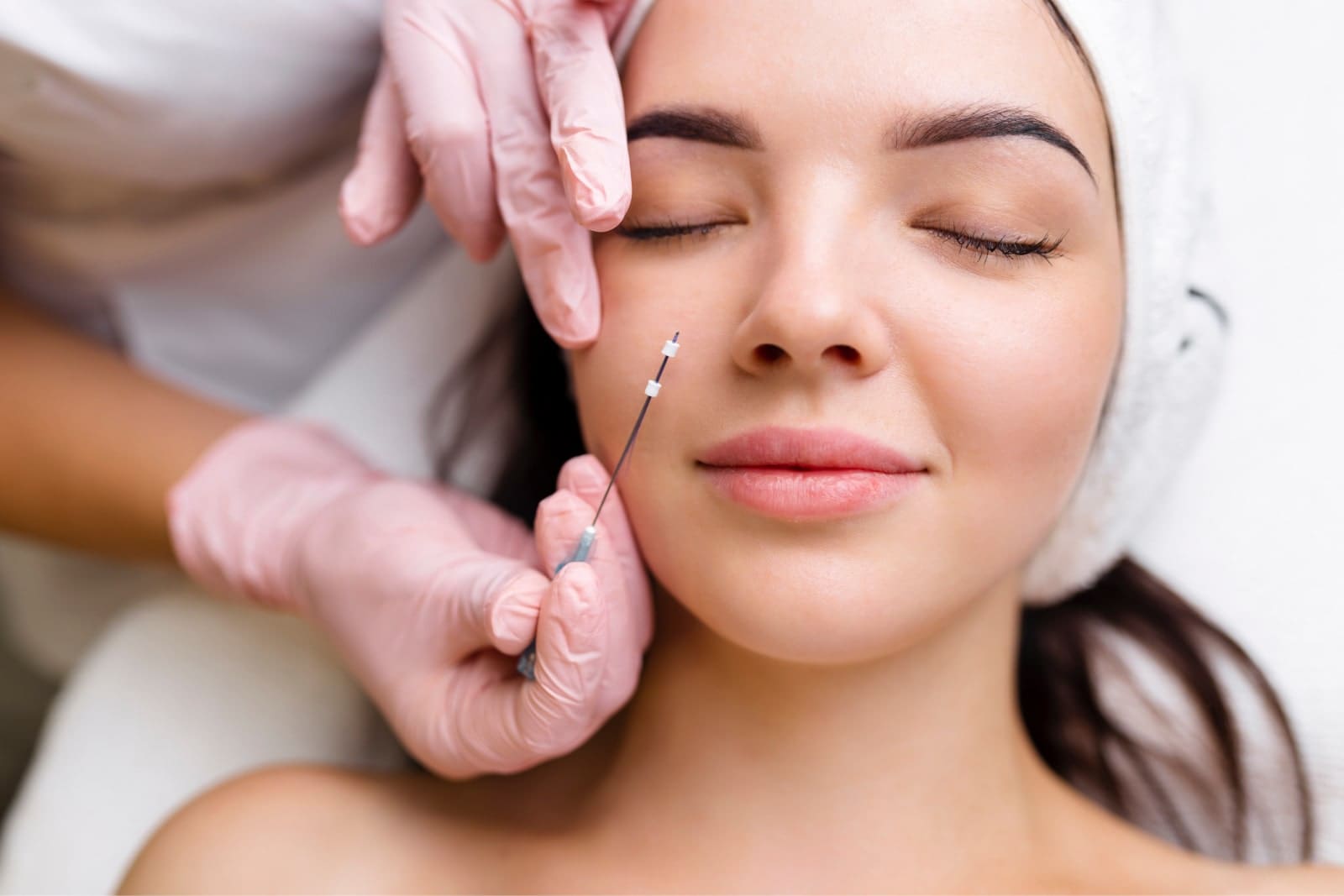Have you ever seen a toddler fall and bump their head, and a big goose egg pops up? But then within a few hours, the goose egg is completely gone? The reason why the healing happens so fast in toddlers is because they are packed full of brand new, naturally occurring peptides and stem cells that are present at birth. Peptides help the body to heal, grow, and function properly, but as we age, the quantity and quality of peptides in the body decreases. Furthermore, the body stops producing peptides altogether at around age 21. This is why peptide injections are vital in keeping the body functioning and regulating itself properly after our early 20s.
Peptides not only keep the body young, but they also help to signal to other cells in the body when there is an issue. So, whatever the issue – chronic pain, hormone imbalance, decreased functioning ability – the peptides send a message to fix the problem. Think of peptides as your body’s internal bodyguard!
What are Peptides?
A peptide is a short amino acid chain that regulates the body’s processes and functions. Peptide therapy replaces or mimics the functions of naturally occurring peptides to rewrite your body chemistry to promote restoration, anabolism, and homeostasis. There are 7,000 known peptides within the human body. Some common functions of peptides include cellular re-growth, pain relief, lean muscle gain, fat burning, increased metabolism, healing, reversing symptoms of sexual dysfunction, and improving hormone production and cognitive function.
Peptides work by communicating with cells in our bodies and signaling them to do certain things, like releasing hormones or increasing metabolism. These naturally occurring peptides signal molecules within the body to instruct other cells and molecules on what functions to perform.
Some people look to peptide therapy to alleviate pain, while others find them to be beneficial for soft tissue repair, speeding up the rate at which the body heals, promoting weight loss, aiding in lean muscle gain, and increasing physical performance. Since peptide therapy improves the body with an inside-out approach, it has grown in popularity for its regenerative properties that can help improve age-related effects on the body by boosting the natural production of a particular hormone, like human growth hormone. Increasing hormones help improve how the body heals and recovers overall, increase energy and strength, promote hair growth, and more.
Why Patients Need Peptide Injections
Even though peptides are found in all cells and tissues of the body, using them as a means of treatment can effectively maintain your health and wellness. Most peptides are administered through injection with a small insulin needle. The reason injectable peptides are superior to oral or topical is because the peptides reach the bloodstream when injected and have a higher bioavailability (how effective the peptide is in your body).
1. They stimulate cellular regrowth and slow down aging.
Short-chain amino acid peptides are the building blocks of proteins that improve cell signals throughout the body. Different peptides have different functions, and some are responsible for stimulating cellular growth. Introducing peptides to the body via injections allows the number of peptides within the body to stimulate cellular regrowth. This individualized treatment delivers peptides directly into the bloodstream through injections, helping them to treat many conditions, fight bacterial, viral, and fungal infections, and reduce oxidative stress. Adding peptides as a means of proactive health and wellness also allows for damaged and weakened cells to be normalized so that they regrow health. Think of peptide injections as a way of mimicking the functions of naturally occurring peptides to rewrite your body’s chemistry to promote restoration, anabolism, and homeostasis
Peptide injections have also been shown to be beneficial in reducing apoptosis, the natural life cycle of a cell in a controlled environment. Treating the body with peptide injections can help stimulate the production of new epithelium tissues and endothelial cells to improve the impact of certain diseases and conditions.
2. Increased energy and physical performance
With age, the body experiences many changes that cause it to become fatigued quickly, affecting your overall health, endurance and physical performance. But utilizing the benefits of peptide therapy injections
Peptide injections can also help patients lose weight, especially in patients with type 2 diabetes. That’s because peptide injections stimulate growth hormone, which helps to increase lean muscle. Peptide injections can also improve your physical performance when used with the proper diet and exercise program. It’s believed that peptide injections can lead to more sustainable workouts to aid in muscle growth and strength thanks to increased growth hormone, leading to improved muscle tone and reduced muscle atrophy.
While increased energy, which also leads to more restful nights, may be one of the reasons why people seek out peptide injections, the treatment’s general wellness benefits continue to keep it in good strides. Peptide injections are often considered an alternative treatment for many blood-related conditions and even medication, like high blood pressure, helping improve overall health and wellness.
3. Improvement of skin aging
Peptides are a common ingredient in topical skincare products, but when injected, they hold anti-aging benefits that work on a different level. Peptide injections can dramatically increase skin elasticity and hydration, increase cell turnover, and aid in collagen and elastin production.
An uptick in moisture levels and collagen leads to less visible skin wrinkling and better skin quality to look more youthful. When used for anti-aging benefits, peptide injections can also improve the health of the hair and nails due to the uptick in collagen and the quality of it. Some patients notice skin improvement, particularly the depth and severity of wrinkles and increased hydration, after just a few weeks of peptide therapy injections.
There’s also an antimicrobial benefit to peptides injections, which can help limit acne breakouts, regulate melanin production, and even provide some benefit against sun damage (although you’ll still need to wear sunscreen for complete protection).
One way peptides help improve the rate at which the skin ages is by enhancing wound healing since peptides can act as antioxidants and reduce inflammation in the protective skin barrier. With less inflammation within the skin, it is better equipped to renew and regenerate itself and speed up the rate at which dead skin cells turnover. Patients who experience skin disorders like psoriasis and eczema look to peptide injections for relief.
With increased collagen production and less inflammation in the body, the skin isn’t the only one to benefit from these effects. The body tends to heal faster when treated with peptide injections because they encourage healthy cellular repair. Peptides can also act as antioxidants helping to defend the body against free radicals and their damage.
How Long Does a Patient Do Peptide Therapy?
Once a patient begins peptide therapy, there is a loading period of about 30 to 90 days, depending on the patient. The patient’s baseline health and genetic makeup will determine how soon they will begin to feel the results of peptide therapy. It is suggested that all patient do at least a 3-month cycle of peptide therapy. However, continued peptide therapy, for up to 12 months, or more, is always the best option to increase the patient’s overall wellbeing, and experience optimal results from peptide therapy.
Some peptides, like TB-500 and BPC-157, both healing peptides, are cycled for a month or two at a time. Other peptides, such as CJC1295 / Ipamorelin and IGF-1, are continued for longer, consecutive periods of time. Each patient should meet with their healthcare provider and discuss their current health issues and goals to determine which peptides will be most beneficial to them. However, no matter the ailment, there’s a peptide for it!




